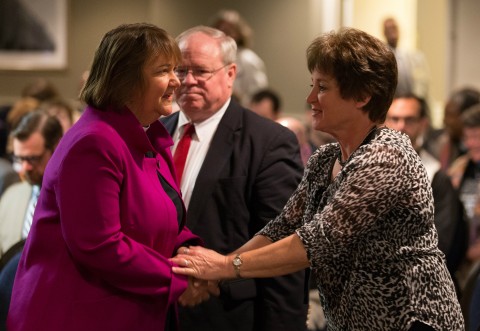Methodists weigh options for staying united
A 32-member commission is seeking a way forward for a denomination with a lesbian bishop—and a policy barring ordained LGBTQ people.

United Methodists could have a reorganized North American church that gives more autonomy to local or regional bodies under an idea that’s gaining traction with a panel charged with tackling the church’s crisis over sexuality.
The idea, which prioritizes “contextualization” and removes restrictive language from the United Methodist Church’s Book of Discipline, was one of three that the Commission on a Way Forward presented to the Council of Bishops in November. A second option would create “different branches” of the church that share services, according to a general statement from the Council of Bishops. A third would maintain the status quo, including the current UMC ban on gay clergy and gay marriages.
Although devoid of specifics, new options on the table are giving United Methodists hope for preserving their 12.7-million-member denomination. Conservatives have long favored keeping the present church policy but are indicating they might be open to other possibilities.





